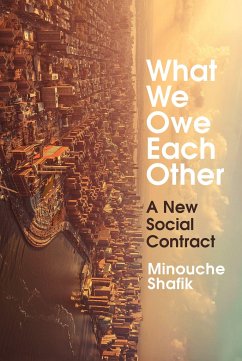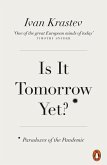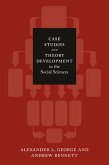One of the world's most influential economists sets out the basis for a new social contract fit for the 21st century
This landmark study by Minouche Shafik, Director of the LSE, draws on evidence from across the globe to show that the social contract - how we pool risks, share resources and balance individual and collective responsibility - shapes not just our wealth and opportunities but the very fabric of our lives. And yet societies everywhere are failing to adapt to the global upheavals of technology, demography and climate, leading to a breakdown in mutual trust the world over.
Brilliantly lucid and accessible, What We Owe Each Other draws on a wealth of evidence and learning to outline the basic principles that every society must adopt to meet these challenges. Reshaping the social contract will have profound implications for gender equality, education, healthcare provision, the role of business and the future of work. This book will equip every reader to understand and play their part in this urgent and necessary transformation.
This landmark study by Minouche Shafik, Director of the LSE, draws on evidence from across the globe to show that the social contract - how we pool risks, share resources and balance individual and collective responsibility - shapes not just our wealth and opportunities but the very fabric of our lives. And yet societies everywhere are failing to adapt to the global upheavals of technology, demography and climate, leading to a breakdown in mutual trust the world over.
Brilliantly lucid and accessible, What We Owe Each Other draws on a wealth of evidence and learning to outline the basic principles that every society must adopt to meet these challenges. Reshaping the social contract will have profound implications for gender equality, education, healthcare provision, the role of business and the future of work. This book will equip every reader to understand and play their part in this urgent and necessary transformation.








